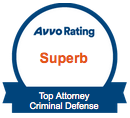Many factors can influence the penalties someone may face if they’re guilty of a criminal offense in Texas. Certain violent or serious crimes, known as 3G offenses, may carry particularly harsh penalties.
What is a 3G offense?
The following overview may answer your questions about this topic.
Why is it Called a 3G Offense?
Article 42.12 Section 3G of the Texas Code of Criminal Procedure previously listed the offenses that qualify as 3G offenses in Texas. The Texas Code of Criminal Procedure 42A.054 now lists these crimes. However, many still informally refer to them as 3G offenses after the older statute.
What Crimes are Labeled as a 3G Offense?
Per the Texas Code of Criminal Procedure, 3G offenses include:
- Criminal Solicitation (if the offense qualifies as a felony of the first degree)
- Murder
- Capital Murder (murder for which one may receive a sentence of capital punishment)
- Aggravated Kidnapping
- Trafficking of Persons
- Continuous Trafficking of Persons
- Indecency with a Child
- Sexual Assault
- Aggravated Sexual Assault
- Injury to a Child, Elderly Individual, or Disabled Individual (if the victim of the offense is a child and the offense qualifies as a felony in the first degree)
- Aggravated Robbery
- Burglary (although not all burglaries qualify as 3G offenses)
- Aggravated Promotion of Prostitution
- Compelling Prostitution
- Sexual Performance by a Child
- Possession or Promotion of Child Pornography
- Use of a Child in Commission of Offense (in cases involving drug offenses)
- Certain Drug-Free Zone offenses
- Manufacture or Delivery of Substance in Penalty Group 1-B
Someone may also be guilty of a 3G offense in Texas if they use or brandish a deadly weapon while:
- Committing a felony offense; or
- Fleeing from the scene after committing a felony offense.
A defendant doesn’t need to be the one who uses or exhibits a deadly weapon to be guilty of a 3G offense. Someone can be guilty of a 3G offense if they participate in a crime, knowing someone is likely to use or brandish a deadly weapon.
What are the Consequences of a 3G Offense?
Per Article 42A.053 of the Texas Code of Criminal Procedure, if a criminal defendant enters a guilty or nolo contendere (no contest) plea, a judge may:
- Place a defendant on community supervision and suspend imposition of a sentence; or
- Place a defendant on community supervision with a fine appropriate for the nature of the offense.
Informally, this means a judge may sentence someone to probation. Texas law states that a court may require someone on probation to participate in court-ordered programs or abide by certain conditions to avoid a stricter penalty (such as prison time).
Furthermore, most criminal convicts are eligible for parole once their actual time served plus good conduct equal one-quarter of their sentence, or 15 years, whichever is less.
However, if the defendant is accused of a 3G offense, a judge may not order community supervision. They must also serve more of their prison sentences before they are eligible for parole.
In addition, most 3G offenses are first-degree felonies. According to the Texas Penal Code, penalties for first-degree felonies may include:
- A minimum of five years in prison and a maximum of 99 years in prison
- A maximum fine of $10,000
A conviction of a 3G offense may also impact parole. Someone serving prison time for a 3G offense must serve at least half their sentence or 30 years (whichever is shorter) before they qualify for parole. If their prison sentence is for less than four years, they won’t be eligible for parole until they’ve served at least two years of their sentence.
Are There Limitations to Probation?
A judge can’t directly order community supervision when someone guilty of a 3G offense enters a guilty or nolo contendere plea. However, per Article 42A.055 of the Texas Code of Criminal Procedure, a jury may recommend a judge suspend the imposition of a sentence and instead order a defendant to community supervision.
A defendant may be eligible for jury-recommended community supervision under Article 42A.055 if:
- Prior to the beginning of a trial, they file a sworn written motion with the judge stating they have never been convicted of a felony in Texas or any other state; and
- The jury’s verdict indicates the defendant’s motion is true.
Certain limitations to jury-recommended community supervision exist. According to Article 42A.056 of the Texas Code of Criminal Procedure, a defendant is ineligible for Jury-Recommended Community Supervision if:
- Their sentence includes a prison term of 10 years or more;
- The offense for which they’re convicted is a state jail felony triggering automatic suspension of imposition of sentence per Article 42A.551;
- A judge finds them guilty of Murder per Section 19.02 of the Texas Penal Code;
- They receive a conviction of Indecency with a Child, Sexual Assault, or Aggravated Sexual Assault if the victim was younger than 14 and the defendant committed the offense with the goal of sexually abusing or violating the victim;
- They’re convicted of Trafficking of Persons, Continuous Trafficking of Persons, Aggravated Promotion of Prostitution, Compelling Prostitution, or Sexual Performance By a Child;
- They’re convicted of a Drug-Free Zone offense for which Section 481.134(c), (d), (e), or (f) of the Texas Health and Safety Code carries increased punishment, if they’ve been convicted of such an offense at least once before in the past; or
- They’re convicted of Manufacture or Delivery of Substance in Penalty Group 1-B if Subsections (d), (e), or (f) apply.
In certain circumstances, a defendant may enter a plea deal for Deferred Adjudication Community Supervision. As with Jury-Recommended Community Supervision, a defendant is not always eligible for this option.
The main point to take from this is that probation may be a possibility in a case involving a 3G offense, depending on a variety of factors.
Contact a Texas 3G Offense Defense Lawyer
A conviction of a 3G offense in Texas can involve serious penalties. You need a strong legal defense to shield you from them.
A San Marcos, TX, defense attorney with the Law Office of Case J. Darwin can explain your legal options in greater detail and develop the right defense strategy for your case. Learn more by calling us or contacting us online for a free case review.




